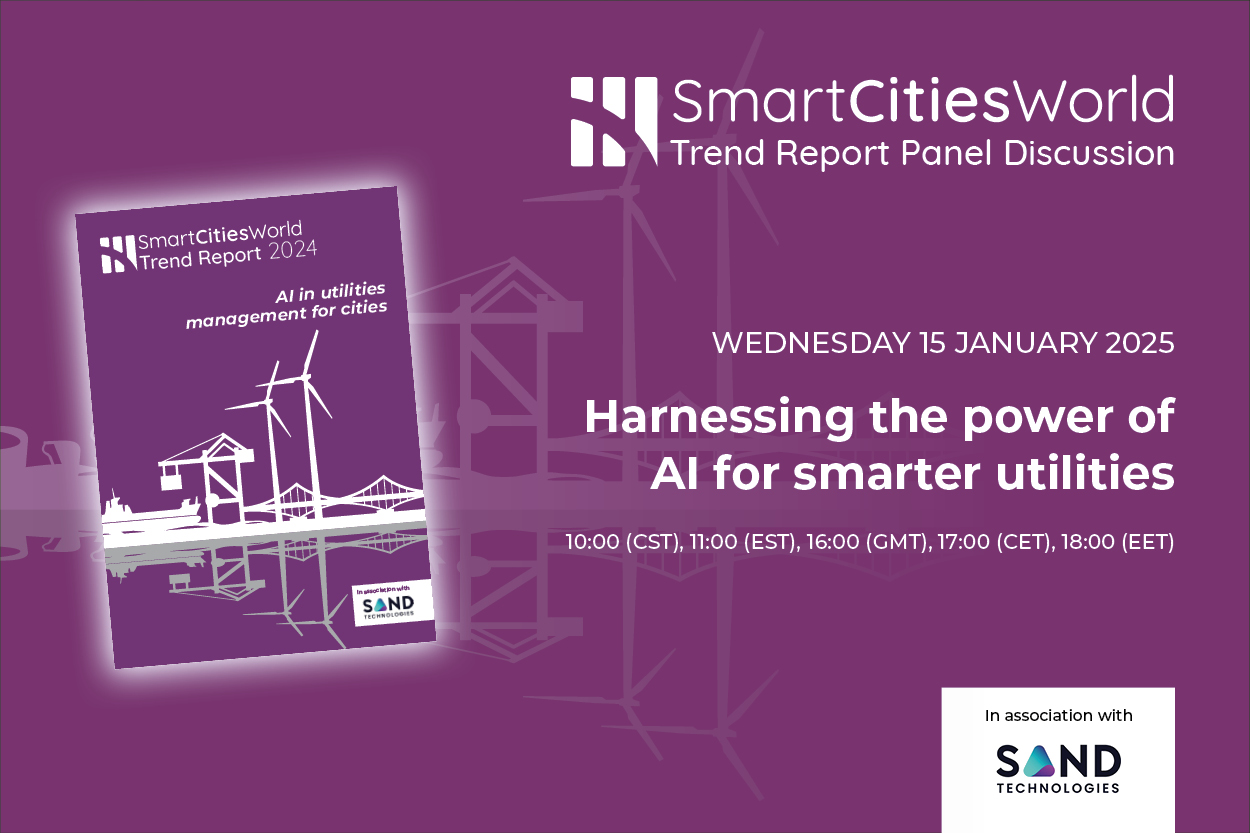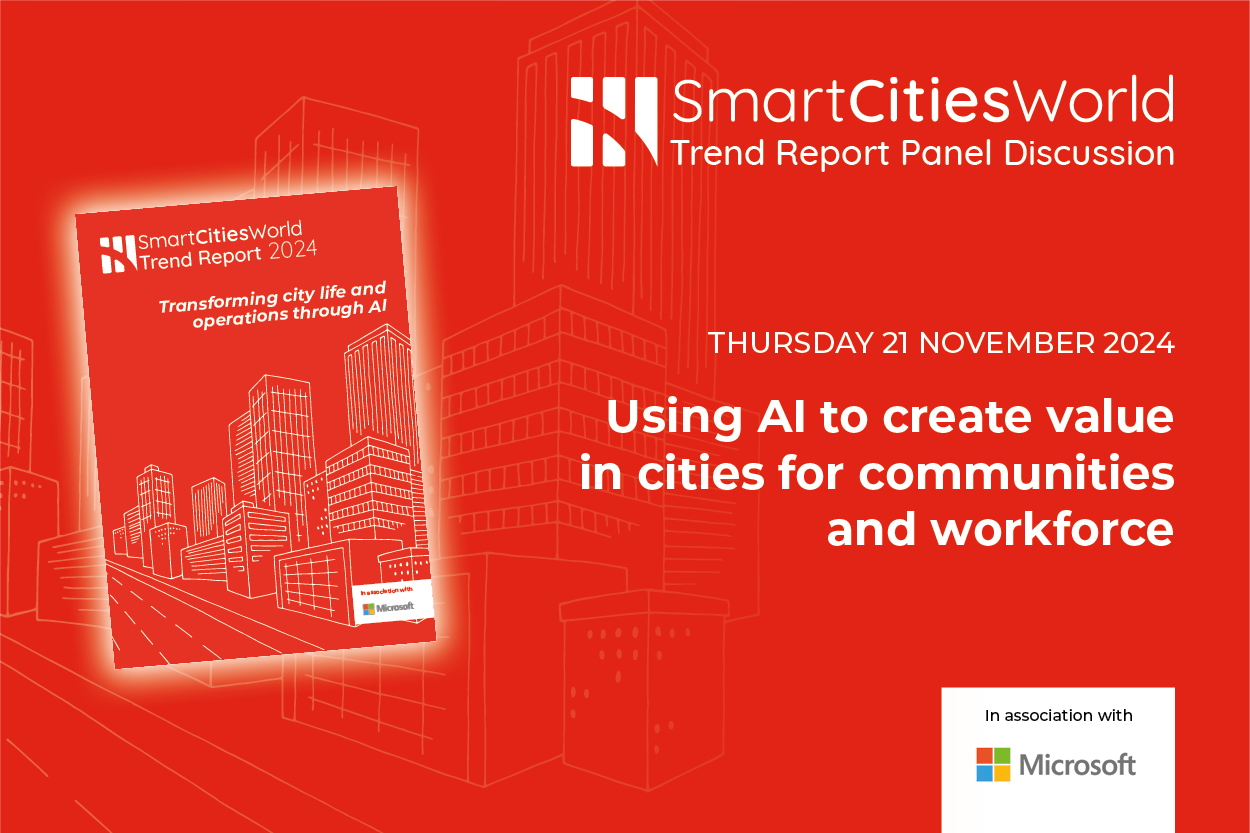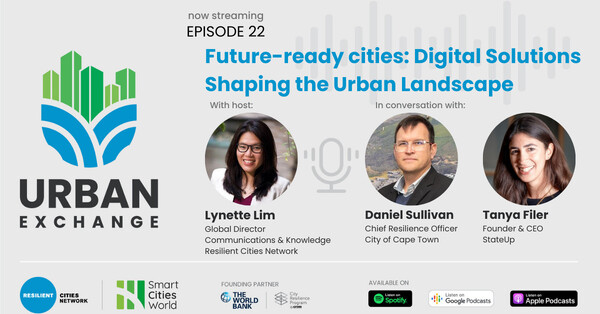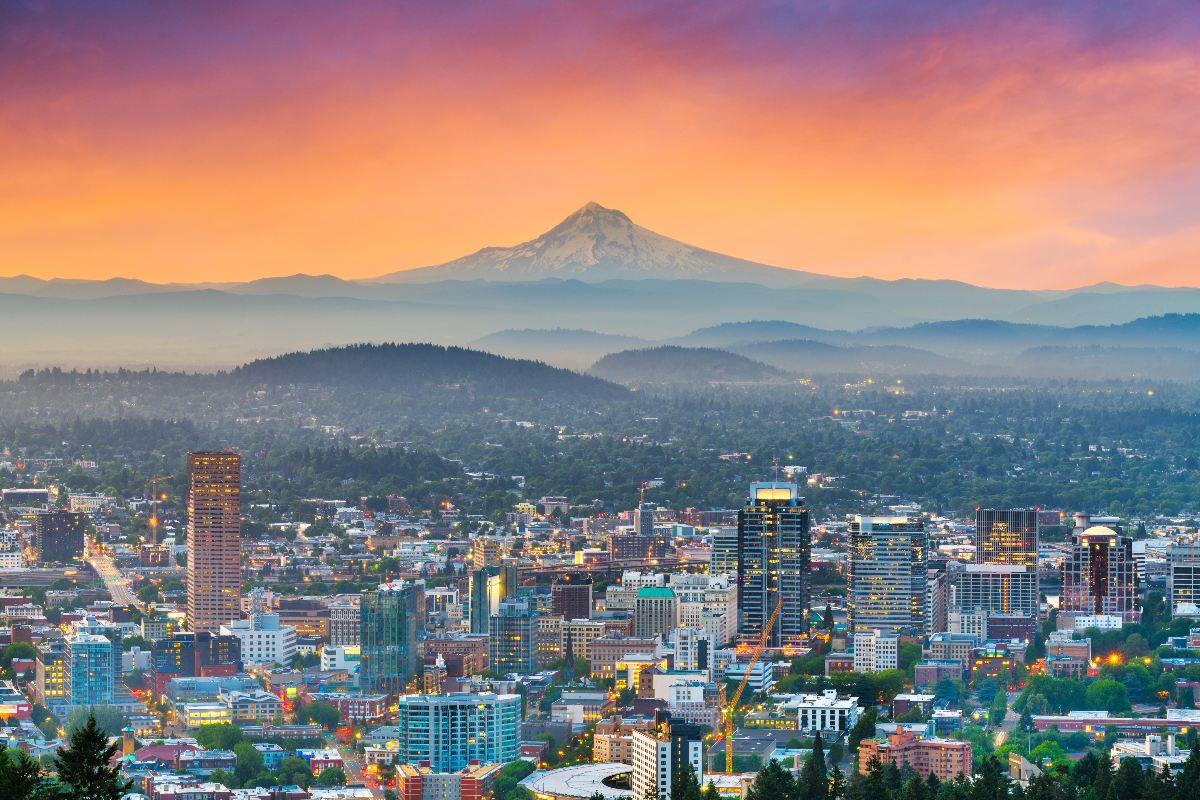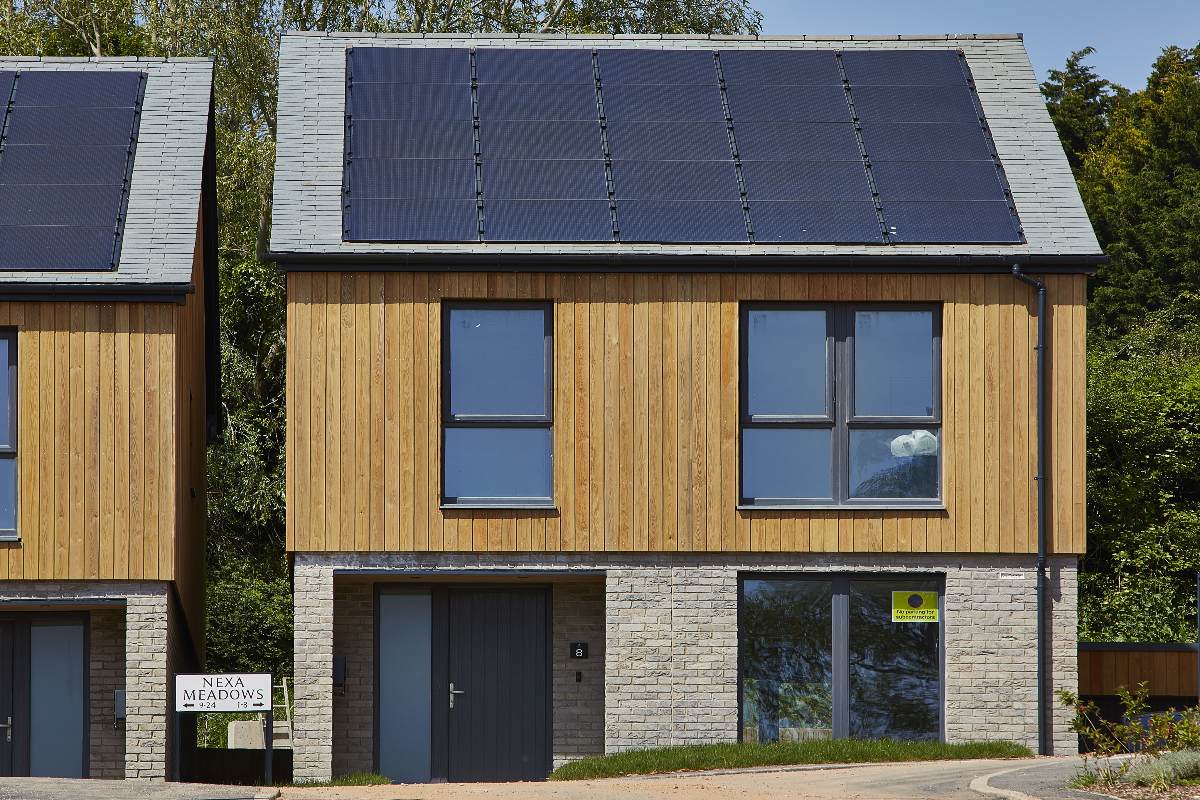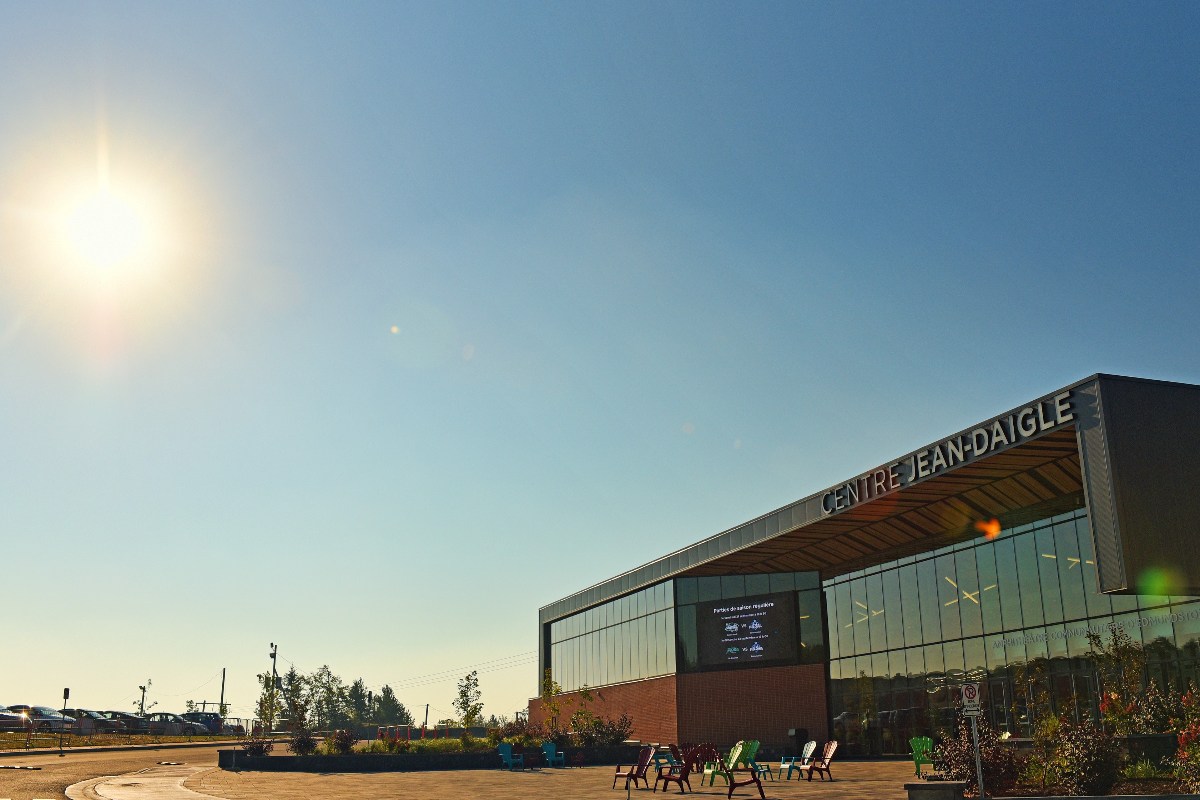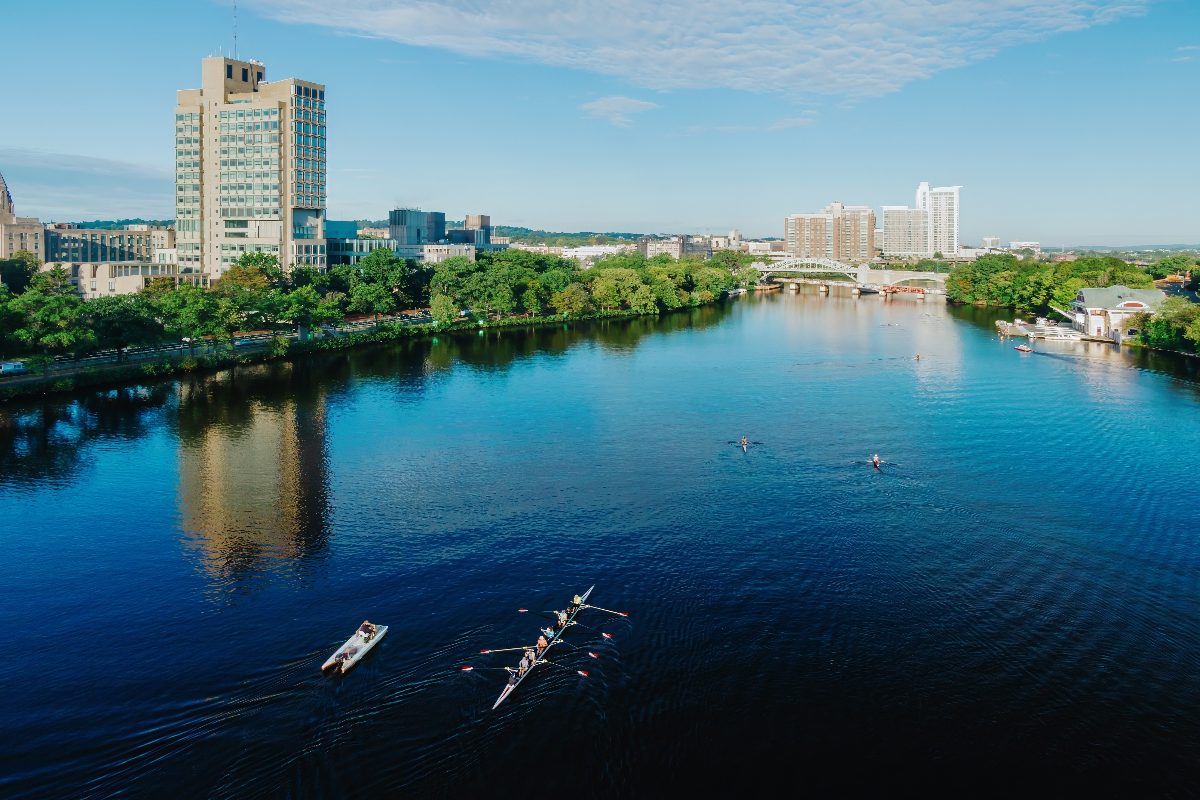Special Reports
SusHi Tech Tokyo 2024: experience ‘Tokyo 2050’ todaySponsored by The SusHi Tech Tokyo 2024 Showcase Program Executive Committee
Cities Climate Action Summit 2024: assessing the role of tech in climate
Digital twins and IoT sensors are among the transformative tools which will be discussed at SmartCitiesWorld’s second Cities Climate Action Summit this year.
As the global community grapples with the urgent need to address climate change, cities are increasingly becoming the focal point for action. Urban areas are not only major contributors to greenhouse gas emissions but also the frontline in facing the impacts of climate change. In this context, the role of technology emerges as paramount in enabling cities to mitigate their environmental footprint and adapt to a changing climate – hence, this pivotal role of technology forms one of the central themes of the Cities Climate Action Summit 2024 (26-27 June).
The Cities Climate Action Summit serves as a platform for policymakers, innovators, and industry leaders to come together and discuss strategies for combatting climate change at the urban level. At the heart of these discussions lie various technological solutions aimed at reducing emissions, enhancing energy efficiency, and fostering resilience. Among the key technologies poised for discussion at the summit, digital twins and IoT sensors perhaps stand out as transformative tools for changing the urban landscape.
Digital twins in climate action
Digital twins represent a paradigm shift in urban planning and management. These digital replicas of physical assets, infrastructure, and systems enable cities to simulate, analyse, and optimise various scenarios in real-time.
By integrating data from multiple sources such as sensors, satellites, and historical records, digital twins offer a comprehensive understanding of urban dynamics. From buildings and transportation networks to energy grids and water systems, this technology provides valuable insights for decision makers to enhance sustainability and resilience.
BE PART OF CITIES CLIMATE ACTION SUMMIT 2024
Do you have an urban climate action story to tell at this year’s Cities Climate Action Summit? Find out how you can become a partner by contacting Carlota Da Veiga Pestana, or request an event information pack here.
One of the key advantages of digital twins is their ability to support evidence-based policymaking. City officials can leverage these virtual models to assess the environmental impact of proposed developments, infrastructure projects, and policy interventions. By running simulations and predictive analytics, they can evaluate different strategies for reducing emissions, conserving resources, and mitigating climate risks. Digital twins empower cities to make informed decisions that optimise resource allocation and minimise ecological footprint.
The 2023 Cities Climate Action Summit featured one of the foremost climate-related digital twin projects, CReDo – or the Climate Resilience Demonstrator, with the Digital Twin Hub set to feature again in 2024. CReDo is a pioneering project using digital twins to enhance the resilience of infrastructure networks against climate change. It focuses on energy, water, and telecoms systems, creating connected digital models that simulate how they interact and react to extreme weather events, particularly flooding. By sharing data securely across sectors, CReDo helps infrastructure owners and operators anticipate and mitigate potential disruptions, ultimately improving overall network resilience. This project showcases the benefits of connected data and collaboration in building a more adaptable and robust infrastructure in the face of climate challenges.
Sensors for a greener future
IoT sensors, another cornerstone of technological innovation in urban climate action, offer real-time monitoring and data collection capabilities across diverse domains. These interconnected devices, embedded in infrastructure, buildings, and public spaces, gather a wealth of information on environmental conditions, energy usage, air quality, and more. By harnessing this data, cities can identify inefficiencies, detect anomalies, and implement targeted interventions to improve sustainability.
For instance, IoT sensors deployed in smart buildings enable precise control of heating, ventilation, and lighting systems, leading to significant energy savings and emissions reductions. Similarly, air quality sensors provide continuous monitoring of pollution levels, enabling authorities to take proactive measures to safeguard public health and mitigate environmental degradation. The proliferation of IoT sensors creates a networked ecosystem where data-driven insights drive sustainable urban management practices.
In addition, the integration of digital twins with IoT sensor networks enhances the effectiveness of urban climate initiatives. By feeding real-time data into digital twin models, cities can create dynamic simulations that accurately reflect current conditions and anticipate future trends. This then enables predictive maintenance of infrastructure, optimisation of resource usage, and the more proactive response to climate-related risks, such as extreme weather events and sea-level rise.
Renewables tech and AI for climate action
In addition to digital twins and IoT sensors, other emerging technologies play a significant role in advancing urban climate action. Artificial intelligence (AI) algorithms offer powerful tools for analysing complex datasets, identifying patterns, and optimising decision-making processes. Machine learning algorithms can optimise energy distribution networks, streamline traffic flow, and enhance waste management practices, thereby contributing to emissions reduction and resource efficiency.
Furthermore, renewable energy technologies such as solar panels, wind turbines, and energy storage systems play a vital role in decarbonising urban energy systems. By harnessing renewable sources of energy, cities can reduce reliance on fossil fuels, mitigate air pollution, and enhance energy security. Innovative solutions such as microgrids and community solar initiatives empower local communities to actively participate in the transition towards a low-carbon future.
The Cities Climate Action Summit serves as a catalyst for collaboration and innovation in harnessing technology for sustainable urban development. By leveraging digital twins, IoT sensors, AI algorithms, and renewable energy technologies, cities can chart a course towards a more resilient, equitable, and sustainable future. However, realising this vision requires concerted efforts from governments, businesses, civil society, and citizens to embrace innovation, foster partnerships, and prioritise climate action at the local level. As cities continue to grow and evolve, technology will remain a key enabler in the journey towards building climate-resilient and environmentally conscious urban environments.
The full agenda for Cities Climate Action Summit 2024 will be released soon, but in the meantime, you can find out more by clicking the button below for a taste of what’s to come and to register your place.
